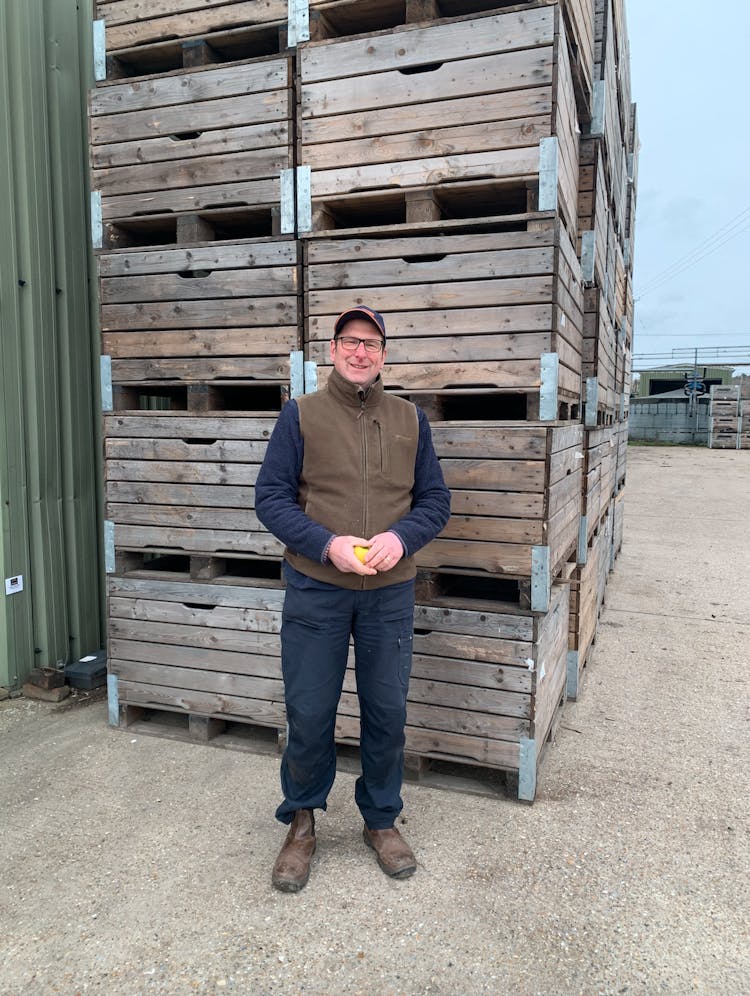Hot Off the Apple Press
It’s a big day here at Oddbox: we’ve just pressed and packed our first-ever apple juice, made with a variety called Lilibet.

To get the squeeze on the rescue story, we spoke to John Evans – our first-ever apple grower – on his farm in Kent.
O: Hi John. Let’s get to the core of things: tell us about your apples.
J: The apples used in the juice are called Lilibet. It’s a variety that was once called Emerald, but a few years ago it was given a new name – possibly to coincide with the Jubilee.
Around 2018, we planted 500 Lilibet trees as part of a trial for a fresh produce company. After a positive response from supermarkets, they then asked for a wider sample, so we planted two whole orchards – each roughly a hectare in size.
O: That sounds like a lot of apple trees!
J: Yes, it’s an expensive undertaking growing a new variety. But – thankfully – having learnt our lesson from previous trials, two hectares is a (relatively) small area.
O: So what happened next? Did the fresh produce company take all the apples?
J: Well… For one reason or another, it turned out that this variety wasn’t needed anymore. We’ve since been able to sell some of our Lilibets to other places, but as the trees are now in their third or fourth year and doing well, the crop we picked in October was too big for any single buyer.
O: So what are we talking? A few thousand apples?
J: Nowhere near! We picked over half a million Lilibet apples last autumn – around 80 tonnes.
O: Blimey! And what did you do with them all?
J: Apples can be stored for a few months – depending on the variety. Bramleys will keep for up to 12 months, dessert apples for around six. But with the huge hike in energy prices, there’s just no way we can store apples like we used to. Plus, this variety will only stay fresh in storage for a couple of months, which is why we had to make a plan to find new destinations.
O: So how did you decide to make juice?
J: I spoke to Deepak [Oddbox founder] only around a month ago to tell him the situation. He was keen to help us, but as there wasn’t space in the actual fruit and veg boxes, we decided to approach a local vineyard in Kent together to see if they could turn our apples into juice.
Biddenden Vineyard is actually the oldest vineyard in Kent, producing cider and juices as well as wine. They even send their fruit pulp off to be used in products like granola, meaning everything is put to good use.
O: How many apples have been turned into juice?
J: So far, around 6.6 tonnes of Lilibets have been pressed and bottled – if the Oddbox community likes the taste, we’re hoping you’ll be back for more! There’s around 73 tonnes still looking for a home.
O: Thank you John. We can’t wait to try the apple juice and are so chuffed to be able to help with the Lilibet rescue mission.
Fancy nabbing a bottle of our first juice, made with John’s rescued apples? Keep your eyes peeled for our add-ons email – pipping its way to your inbox very soon.

